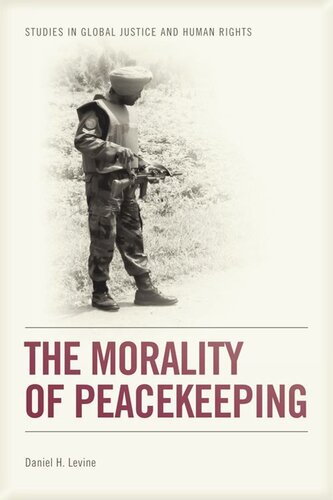

Most ebook files are in PDF format, so you can easily read them using various software such as Foxit Reader or directly on the Google Chrome browser.
Some ebook files are released by publishers in other formats such as .awz, .mobi, .epub, .fb2, etc. You may need to install specific software to read these formats on mobile/PC, such as Calibre.
Please read the tutorial at this link: https://ebookbell.com/faq
We offer FREE conversion to the popular formats you request; however, this may take some time. Therefore, right after payment, please email us, and we will try to provide the service as quickly as possible.
For some exceptional file formats or broken links (if any), please refrain from opening any disputes. Instead, email us first, and we will try to assist within a maximum of 6 hours.
EbookBell Team

4.8
54 reviewsPeacekeeping, peace enforcement and ‘stability operations’ ask soldiers to use violence to create peace, defeat armed threats while having no enemies and uphold human rights without taking sides. The challenges that face peacekeepers cannot be easily reduced to traditional just war principles.
Daniel H. Levine uses insights from care ethics as well as extensive interviews with peacekeepers to develop the idea that peacekeepers have no enemies and should be seeking to bring even abusive actors into a Kantian ‘kingdom of ends’. He argues that, while it contains elements of all three, peacekeeping is morally distinct from war, policing and governance. And he asserts that the traditional ‘holy trinity’ of peacekeeping principles – consent, impartiality, and minimum use of force – still provide the best guide to its morality.